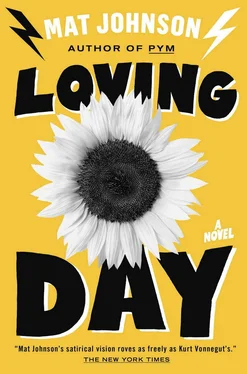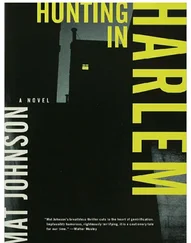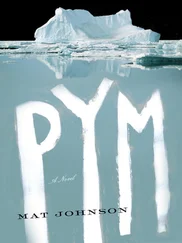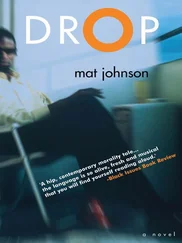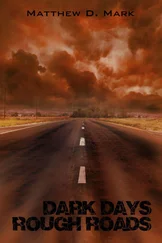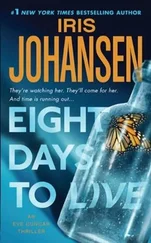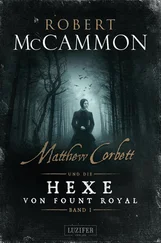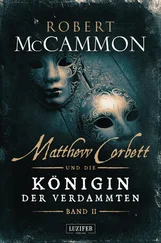“What the hell was that?” Tal asks.
“Do you see people?” I have to know. But she doesn’t look at the lawn. She looks at me.
“You are so wasted,” Tal responds, then shuts the window back on me. It thunders on impact and I hear it echo, off the rotting porch, down the hill, bouncing to the row houses across the street, then coming back again.
I look back at the guy. I look back at the woman. Both gone. Both nothing.
AT THE ENTRANCE, the Bug sits crumpled and indignant. One of my keys goes to the chain sealing the driveway’s padlock, and I take the chains off so I can yank the twisted metal off its grille. I’m not even scared anymore. Just tired. If I wasn’t, I would take Tal and we would leave this house right now. Run. That’s what we should be doing. Running. This is what I really have to teach her. You can even run away from yourself — eventually, yourself catches up to you, but then you just run once more.
This house is going to burn because I refuse to be trapped inside its crumbling walls. I’m not going to wait years for this place to sell. I’m not going to rent it, and be haunted by tenant complaints every time something breaks, be indebted to it for life. I am not my past. I am not my hometown. I don’t want any crackheads in my future. I’m not going to be stuck back in Philly for the rest of my life, back in Germantown, dragged down by everything I’ve worked so hard to be free from. More important: Tal is not either. It simply cannot happen. There will be fire.
After I call the cops I take the coffee can of dead matches and cigar butts off the porch, remove the cigar butts, then I walk to the side of the house and dump the remains there. I don’t want to go near the garage because of the crackhead infestation, but I risk it and it’s okay, no one’s there. I dump the rest of the butts and matches inside the garage, in a corner, kick them around a bit for a more natural look. Evidence. When I get back in, I make coffee while we wait for the police.
The crackheads haven’t stolen anything from me. No, they’ve given me the gift of a documented incident to later prove probable cause. Crackheads destroy things. First, their lives, obviously. And then their families. But they also destroy houses. They light fires and they have poor judgment; both things are required if you’re going to be a crackhead. They make houses burn down. They’re not as thorough as meth heads, who have the benefit of their exploding labs, but crackheads have left a respectable number of ruined buildings in their wake. A crackhead did it is a reasonable cause of destruction on any forensic report. A history of crackhead infestation is a legitimate explanation for loss of property. It’s all so exciting I catch myself whistling.
“Are you still drunk?” Tal’s wide awake, standing in the kitchen doorway, her hair hidden under the wrap of a pink scarf.
“What? What kind of thing is that to say to someone? To someone who’s your father?” When Tal’s quiet in response, and stands there till I feel my guilt starting to answer for her, I say, “I’m not drunk, okay? Anymore.”
“You’re not high, are you?”
“Jesus, Tal!”
“It’s just, you were a mess last night. And now you’re, like, entirely too upbeat for seven o’clock, Saturday morning. You’re, like, serialkiller upbeat. It’s freaking me out. Please stop.”
“I’m just looking on the bright side. Of things.” In response to that, Tal keeps staring at me. I go back to putting the milk away. Then drinking what I’d poured into a glass. Tal keeps watching, motionless, without comment.
“I need things. And I’m going to tell you what they are.”
I put down the glass, say, “Okay. Hit me.”
“I need quiet. At night. Late at night. After midnight.”
“That’s totally understandable. I do too.”
“And no drinking. Not like never, but not like, on the regular. I mean, wine, that’s okay, but no heavy stuff. Of any kind. I’m done with that. With how it was with my mom, even with Irv. Not doing that again.”
“I don’t drink often,” I lie. “I usually don’t get drunk,” I clarify, which is closer to the truth.
“It just turns people into assholes.”
“Glad you don’t think I’m already an asshole,” I tell Tal. Her response is just to continue staring at me, the process judgment visible in her eyes.
“Good,” Tal says, and keeps standing there. I take another drink of milk. I don’t know what else to say. I don’t know what her life has been like. I know that I wish I had been in it, but I don’t know where she was all that time, really. I know what it is like to lose a mom, but not to lose her mom, and not the way she did.
Tal steps forward, hand outstretched. We shake. And it’s not enough; it shouldn’t be enough. So I pull her in, wrap my arms around her. After a moment, her arms lift up and hold my back. I’ve never held my daughter this long before, and it’s only a few seconds. The thought makes me grip tighter.
Before Tal can pull away, I say, “I’m going to have to go out, get some things this afternoon. But I’ll be back to take you to dance practice, okay? I’ll give you a ride to campus.”
“Oh God, not on the bike. I can’t sit for an hour after I get off that thing.”
“Don’t worry, I’ve got a car now.”
“That car?” Tal says, and releases me to point out the window, where the Constables of the Police of the City of Philadelphia are hooking up their tow.
—
I don’t call George. I call Tosha. I ask Tosha to talk to George, tell her that they’re trying to impound my dad’s car just because of an overdue inspection, a missing registration, and twenty-seven unpaid parking tickets dating back to 1982. Sirleaf Day’s number leads to a recording of him saying “Hello?” followed by a three second pause. I fall for it, talk into the space, then hear the beep. The joke is old, but young compared to him. Into his voice mail I beg him to get over here before I’m stuck on a bench at the 14th Police District, staring at a linoleum floor. All I get in response is a beep, which is more than the dead expression I get trying to explain that my dad is deceased to the cops. The officers seem pretty intent on having me take “a trip” with them to “sort everything out” until George pulls up.
He’s wearing a fedora and a raincoat. He’s been a detective for four years and yet he’s still playing at it. The awkward part about talking to George is that our friendship is based entirely on the fact that, despite my closeness with Tosha in those younger years, I never tried to seduce the girlfriend who became his wife. What George and I have is not even a real friendship, more of an established truce.
“Sins of the father,” he says, and he laughs at me. It’s the first smile he’s broken since the uniformed guys pulled away. “Man, you got a $3,439 bill on a car that hasn’t had legal tags for two years.”
“Well, it runs. It did last night. Or rolled, at least.”
“It won’t again if you don’t pay in ninety days.”
“Yeah, well, we all got our problems.” I try to shrug this one off. He laughs again. Harder this time, longer. Sighs at the end of it. “So Tosha told you.”
“She told me. Sorry man.”
“You are sorry, but not as sorry as my ass. My life is all kinds of fucked the hell up.”
He slaps his hand on my back as we walk up the hill to the garage. It’s a relatively weak tap, like he knows not to push me too far right now. “What else did she tell you? I mean, what specifically?” he asks.
“She said you moved out. That you come in the mornings so the kids don’t know. She thinks you met someone else. She thinks,” I start to say, and then I pause.
Читать дальше
